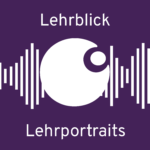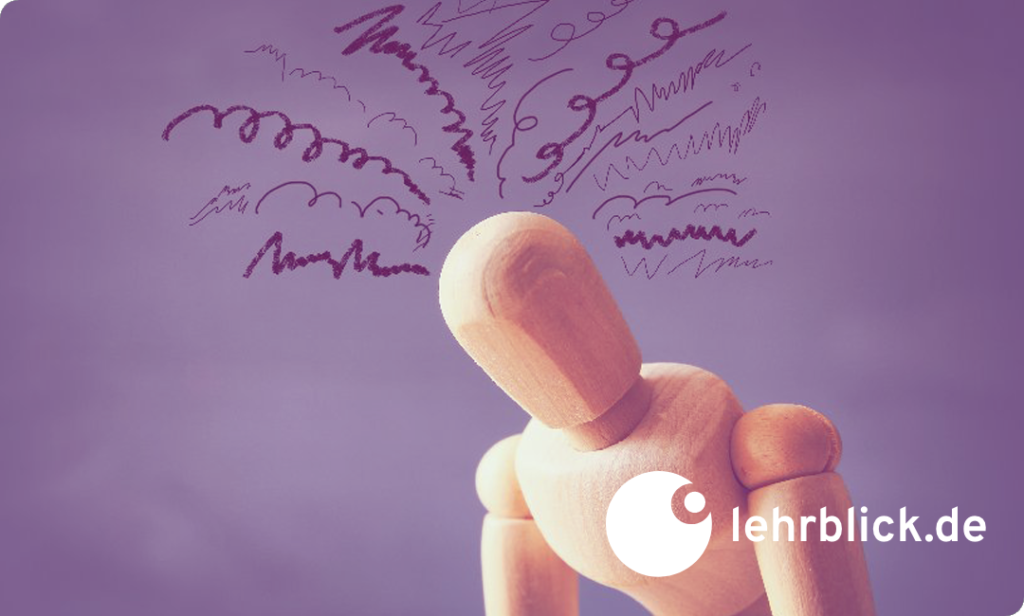
In the fourth series of our podcast, Birgit Hawelka is talking to Magdalena Abel about the topic of retrieval practice. To summarise briefly, this is a teaching strategy where you use the process of retrieving information in order to fix content in your memory. In this conversation, Magdalena Abel explains the concept in a way that is very easy to understand, and also derives very specific recommendations for its practical use in teaching at university.

Dr. Magdalena Abel is a cognitive psychologist. She obtained her doctorate and postdoctoral lecture qualification at the University of Regensburg. She is conducting research into human memory, focusing on recall and retrieval processes in individual, social and collective recall. As a senior lecturer, she is also actively teaching and is responsible for various kinds of courses.
According to retrievalpractice.org she’s one of 35 cognitive psychologists you need to know.
Time Stamps
| 01:04 | What does “retrieval practice” mean? |
| 01:50 | How does retrieval practice differ from normal repetition, such as when learning definitions of some sort off by heart? |
| 03:13 | So this active practice template seems to have cognitive advantages. You did an interesting research project on that topic, didn’t you, where you looked beyond the limits of cognitive psychology alone? What exactly did you investigate? |
| 05:28 | How exactly was your study structured? How did you investigate whether retrieval practice of this nature has other positive effects, not only on the memory but also on other components associated with self-regulated learning? |
| 07:37 | How could retrieval practice be integrated into teaching outside these lab scenarios? Do you have any ideas or could you make one or two specific suggestions in that regard? |
| 10:02 | How do I manage the degree of difficulty, that is, the medium degree of difficulty for the average person? |
| 12:48 | So would you recommend just doing more quizzes? Or how should the teaching be designed so that the potential of retrieval practice can be ideally used? |
References
Abel, M. & Bäuml, K.-H. T. (2020). Would you like to learn more? Retrieval practice plus feedback can increase motivation to keep on studying. Cognition, 201, 104316.
Abel, M., Haller, V., Köck, H., Pötschke, S., Heib, D., Schabus, M., & Bäuml, K.-H. T. (2019). Sleep reduces the testing effect – but not after corrective feedback and prolonged retention interval. Journal of Experimental Psychology: Learning, Memory, and Cognition, 45, 272-287.
Abel, M. & Roediger, H. L. III (2018). The testing effect in a social setting: Does retrieval practice benefit a listener? Journal of Experimental Psychology: Applied, 24, 347-359.
Abel, M. & Roediger, H. L. III (2017). Comparing the testing effect under blocked and mixed practice: The mnemonic benefits of retrieval practice are not affected by practice format. Memory & Cognition, 45, 81-92.
Suggestion for citation of this blog post
Hawelka, B. (2022, October 13). Retrieval Practice. Lehrblick – ZHW Uni Regensburg. https://doi.org/10.5283/ZHW.20221013.EN

Birgit Hawelka
Dr. Birgit Hawelka is a research associate at the center for University and Academic Teaching at the University of Regensburg. Her research and teaching focuses on the topics of teaching quality and evaluation. She is also curious about all developments and findings in the field of university teaching.





